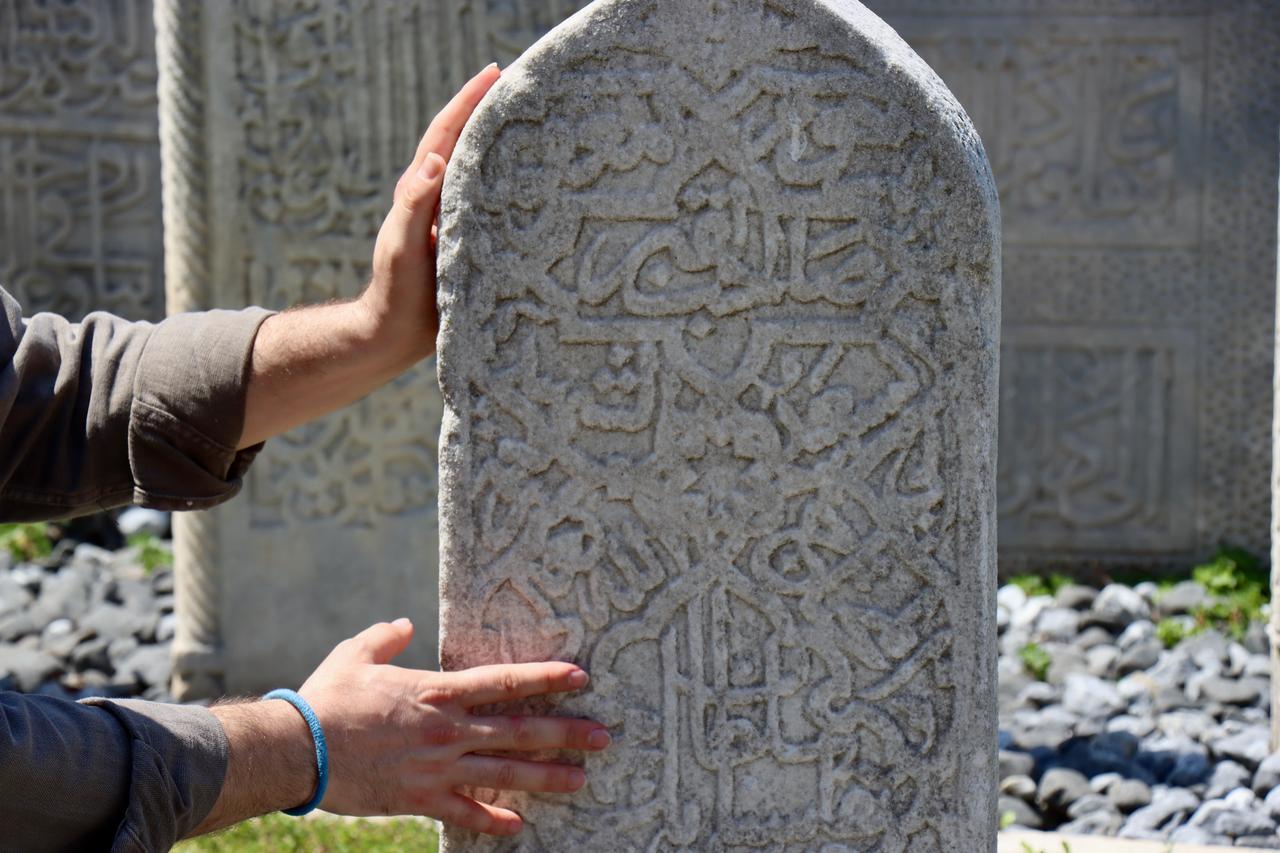
The tombstone of Sinan Bey, a renowned Ottoman court painter known as "Nakkas," who served under Sultan Mehmed II , is preserved in the garden of the Turkish Islamic Arts Museum in Bursa. Despite his significant role in Ottoman art, his final resting place remains largely unknown to the public.
Located in the garden of the Turkish Islamic Arts Museum—part of the Yesil Medrese complex commissioned by Sultan Celebi Mehmet between 1414 and 1424—Sinan Bey's tombstone is a rare artifact from the Ottoman era. The intricate Arabic inscription on the stone reads "Nakkas-i Sultan," meaning "Painter of the Sultan."
Sinan Bey's life remains shrouded in mystery, but records from Ottoman historian Gelibolulu Mustafa Ali's "Menakib-i Hunerveran" reveal that he was an accomplished artist who traveled to Italy, where he studied under the renowned painter Mastori Paoli. His fame is closely tied to the iconic portrait of Sultan Mehmed II, believed to be either his work or that of his student, Siblizade Ahmet Celebi.

Sinan Bey was buried in the Deveciler Cemetery in Bursa during the 1480s, a burial ground that no longer exists. His tombstone was moved to the Bursa Museum garden in 1922, where it remains today. Historians emphasize that the tombstone, known to only a few experts, should be made more accessible to the public.
Sinan Bey is believed to have served as a court painter from the reign of Sultan Celebi Mehmet through the era of Sultan Mehmed II. His works, including a notable portrait of Sultan Mehmed II held in the Topkapi Palace Museum Library, reflect his mastery.
Historians like Professor Hasan Basri Ocalan and historian writer Samet Altintas stress the importance of commemorating Sinan Bey. A plaque or dedicated information panel near his tombstone could help visitors appreciate his legacy.
"Sinan Bey was a master artist who blended Ottoman and European techniques, and his story deserves to be remembered," Altintas stated.